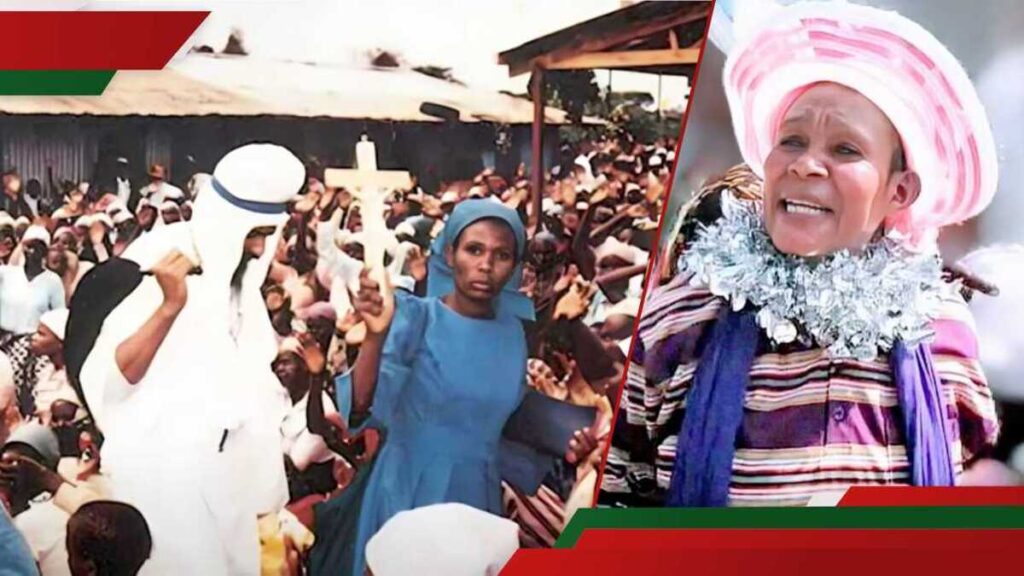Thousands of congregants from the Jerusalem Church of Christ gathered in Kawangware, Nairobi, to pay their last respects to Mary Akatsa, a self-declared prophetess and church founder, who passed away on November 16, 2024. Known for her controversial leadership style and strict adherence to biblical teachings, Akatsa’s death marks a significant moment for her followers and the wider religious community in Kenya.

Mary Akatsa (r) refuted claims that the man who visited his church was Jesus. Photos: Jerusalem Church of Christ. Source: Facebook
Born Mary Sinaida Akatsa in Ebusiralo, Vihiga County, she founded the Jerusalem Church of Christ in the late 1980s while working as a maid. Her rise to prominence was marked by her no-nonsense approach to leadership, which included punishing latecomers to services by slapping them or imposing fines. This strict discipline garnered both admiration and criticism, making her a polarizing figure in Kenya’s religious landscape.
Akatsa gained notoriety in June 1988 when she claimed to have brought Jesus Christ to her church during a service. An Asian man dressed in white robes appeared before her congregation, leading many to believe he was the Messiah. However, it was later revealed that he was a Sikh who had converted to Christianity. This incident sparked widespread debate and controversy but also solidified her reputation as a leader willing to challenge conventional norms.
Her funeral procession began at Umash Funeral Home, where thousands of followers gathered to escort her body back to Kawangware. The atmosphere was filled with music and dancing as congregants celebrated her life, bringing traffic to a standstill along the route. Many wore white and blue hats, symbolizing their unity and respect for their beloved leader.
Akatsa’s impact extended beyond her church; she was known for her philanthropic efforts and dedication to helping the underprivileged. Local leaders, including Kisii Governor Simba Arati and Dagoretti North MP Beatrice Elachi, praised her contributions to the community. Elachi recalled how Akatsa transformed lives through prayer and guidance during a time when few churches existed in Kawangware.
Despite her controversial methods, Akatsa maintained a loyal following who viewed her as a spiritual guide. Her teachings emphasized discipline and accountability among her congregants, often leading to intense loyalty from those who believed in her vision. Many followers shared stories of how she had personally impacted their lives through prayer and support.
As the procession continued through Kawangware, videos captured the vibrant atmosphere of celebration mixed with sorrow. Followers danced joyfully while reflecting on Akatsa’s legacy—one that will likely spark discussions about the balance between strict religious discipline and compassion within spiritual leadership.
The Jerusalem Church of Christ now faces the challenge of continuing without its founder, whose unique approach attracted both fervent supporters and vocal critics. Akatsa’s passing leaves behind a complex legacy that intertwines faith with controversy, illustrating the multifaceted nature of religious leadership in contemporary Kenya.
Mary Akatsa’s death signifies not only the loss of a prominent religious figure but also highlights the enduring influence she had on her community. Her life story serves as a testament to the power of faith and the complexities that often accompany strong leadership within spiritual movements. As her followers mourn her passing, they also celebrate the profound impact she made on their lives and the broader society.



















